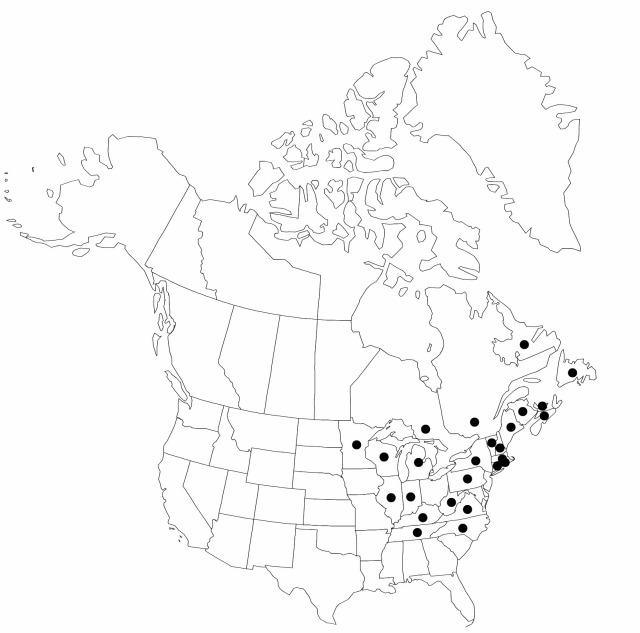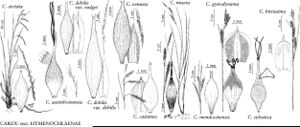Carex debilis var. rudgei
Mem. Torrey Bot. Club 1: 34. 1889.
Lateral spikes pistillate, perigynia only slightly overlapping, attached 2–9 mm apart. Pistillate scales with hyaline margins usually suffused or streaked with dark red or chestnut, acute to often cuspidate. Perigynia lance-ellipsoid, 5–6.2 mm, apex rather abruptly narrowed to beaked; beak 5–6.2 mm. 2n = 50, 52, 54, 56, 60.
Phenology: Fruiting summer.
Habitat: Edges, openings, paths and stream banks in dry to mesic deciduous forest, meadows, wet prairies, roadsides, usually on soils with pH below 6
Distribution

N.B., Nfld. and Labr., N.S., Ont., P.E.I., Que., Conn., Del., D.C., Ga., Ill., Ind., Ky., Maine, Md., Mass., Mich., Minn., N.H., N.Y., N.C., Pa., R.I., Tenn., Vt., Va., W.Va., Wis.
Discussion
Most collections of the northern variety, Carex debilis var. rudgei, have glabrous perigynia, but those with pubescent perigynia can be found in the southeastern part of the range, especially in the mountains. The two forms often grow together in the same population. Hybrids with both C. virescens and C. swanii occur sporadically throughout their common range. A rare hybrid with C. castanea occurs in the northern part of its range.
Selected References
None.
